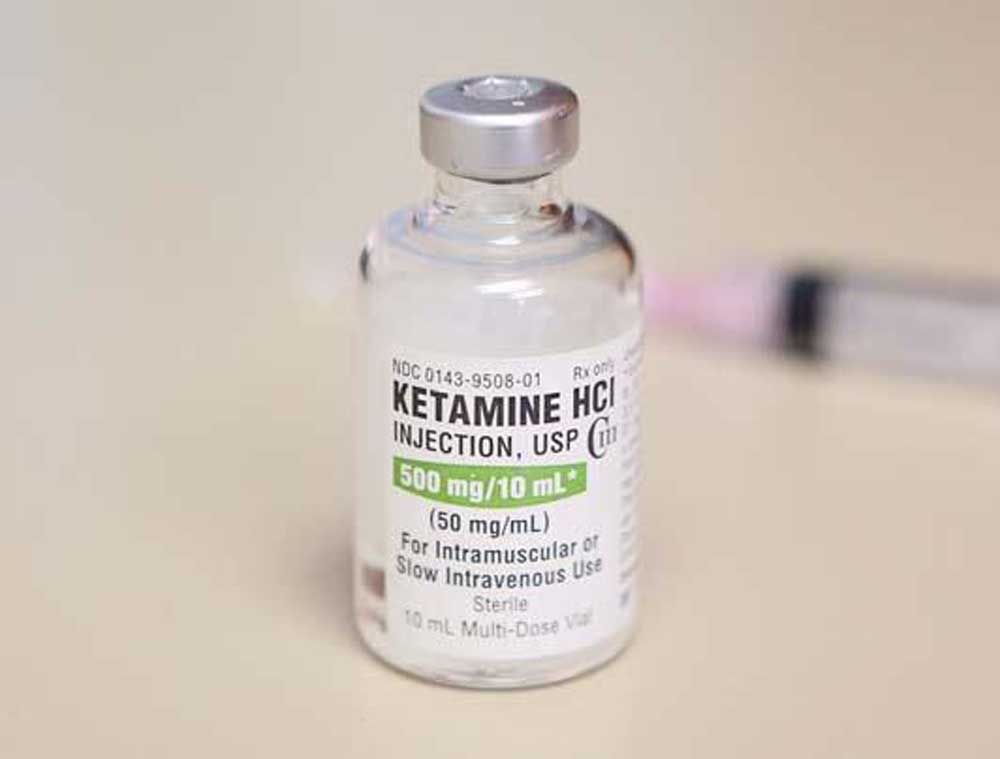Chameleon Drug
Published 5:00 am Sunday, November 4, 2018

- KETAMINE WAS launched decades ago as an anesthetic for animals and people. It became a potent battlefield pain reliever in Vietnam and morphed into the trippy club drug Special K. Now the chameleon drug ketamine is finding new life as an unapproved treatment for depression and suicidal behavior.
It was launched decades ago as an anesthetic for animals and people, became a potent battlefield pain reliever in Vietnam and morphed into the trippy club drug Special K.
Now the chameleon drug ketamine is finding new life as an unapproved treatment for depression and suicidal behavior. Clinics have opened around the United States promising instant relief with their “unique” doses of ketamine in IVs, sprays or pills. And desperate patients are shelling out thousands of dollars for treatment often not covered by health insurance, with scant evidence on longterm benefits and risks.
Chicago preschool teacher Lauren Pestikas long struggled with depression and anxiety and made several suicide attempts before trying ketamine earlier this year.
The price tag so far is about $3,000, but “it’s worth every dime and penny,” said the 36-year-old.
Pestikas said she feels much better for a few weeks after each treatment, but the effects wear off and she scrambles to find a way to pay for another one.
For now, ketamine has not received approval from the U.S. Food and Drug Administration for treating depression, though doctors can use it for that purpose.
Ketamine has been around since the 1960s and is widely used as an anesthesia drug during surgery because it doesn’t suppress breathing. Compared to opioids such as morphine, ketamine isn’t as addictive and doesn’t cause breathing problems. And some studies have shown that ketamine can ease symptoms within hours for the toughest cases.
Its potential effects on depression were discovered in animal experiments in the late 1980s and early 1990s showing that glutamate, a brain chemical messenger, might play a role in depression, and that drugs including ketamine that target the glutamate pathway might work as antidepressants.
Conventional antidepressants like Prozac target serotonin, a different chemical messenger, and typically take weeks to months to kick in — a lag that can cause severely depressed patients to sink deeper into despair.
Ketamine’s potential for almost immediate if temporary relief is what makes it so exciting, said Dr. Jennifer Vande Voort, a Mayo Clinic psychiatrist who has used ketamine to treat depression patients since February.
“We don’t have a lot of things that provide that kind of effect. What I worry about is that it gets so hyped up,” she said.
The strongest studies suggest it’s most useful and generally safe in providing shortterm help for patients who have not benefited from antidepressants. That amounts to about one-third of the roughly 300 million people with depression worldwide.
“It truly has revolutionized the field,” changing scientists’ views on how depression affects the brain and showing that rapid relief is possible, said Yale University psychiatrist Dr. Gerard Sanacora, who has done research for or consulted with companies seeking to develop ketamine-based drugs.
But to become standard depression treatment, he said, much more needs to be known.
Last year, Sanacora coauthored an American Psychiatric Association task force review of ketamine treatment for mood disorders that noted the benefits but said “major gaps” remain in knowledge about long-term effectiveness and safety. Most studies have been small, done in research settings and not in the real world.
When delivered through an IV, ketamine can cause a rapid increase in heart rate and blood pressure that could be dangerous for some patients. Ketamine also can cause hallucinations that some patients find scary.
“There are some very real concerns,” Sanacora said. “We do know this drug can be abused, so we have to be very careful about how this is developed.”
Dr. Rahul Khare, an emergency medicine specialist in Chicago, first learned about ketamine’s other potential benefits a decade ago from a depressed and anxious patient he was preparing to sedate to fix a repeat dislocated shoulder.
“He said, ‘Doc, give me what I got last time. For about three weeks after I got it I felt so much better,'” Khare recalled.
Khare became intrigued and earlier this year began offering ketamine for severe depression at an outpatient clinic he






